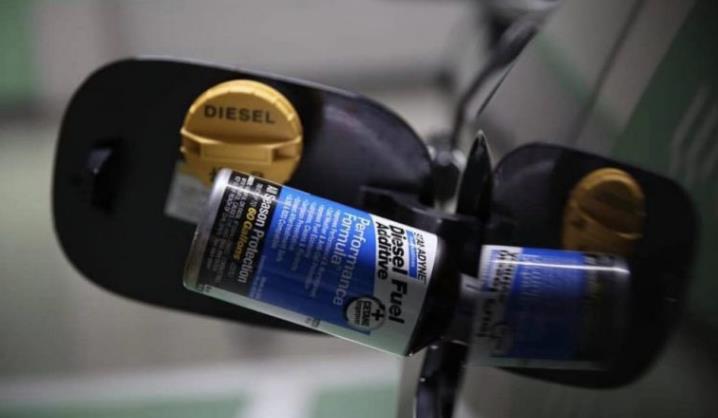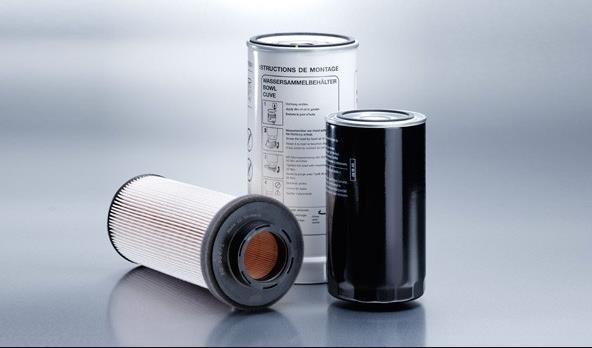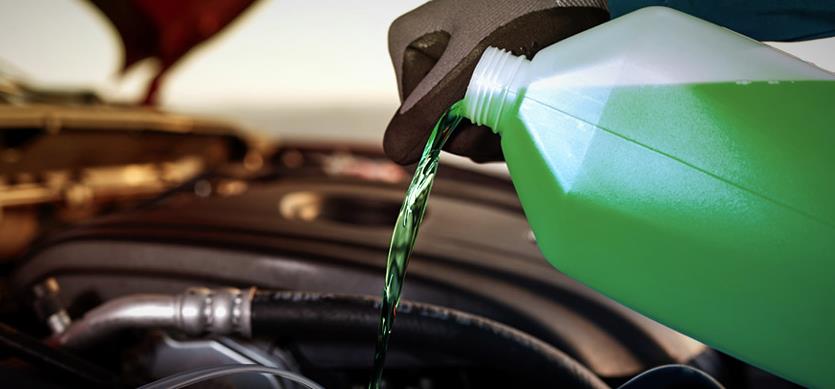
How to Manage a Distributed Remote Team Nov 23, 2024


How to Secure CRM Software and Ensure Data Privacy Sep 30, 2024



How NLP Can Transform Your Communication Skills Aug 27, 2024

Essential HVAC Maintenance for Rental Properties Aug 26, 2024

Maximizing Equipment Lifespan with CMMS Software Aug 08, 2024

Top Business Tools for Streamlining Your Operations Aug 01, 2024
Maintain Your Turbocharged Diesel Engine with These 4 Simple Tips
Jun 23, 2020 19:52
The introduction of biodiesel in the past few years has completely changed the diesel landscape from what it was a decade ago – ultra-low Sulphur. However, a turbocharged diesel engine can lead to long-term damages and monetary losses if not appropriately maintained.
Turbocharged diesel engines require comparatively more maintenance in terms of changing the oil and putting on fresh spark plugs. However, typically a turbo engine is easy to maintain if managed the right way.
Fortunately for you, we have broken down the maintenance into four tips that can collectively help you keep your vehicle smooth-running and prolong engine life.
1. Ideal Use of Turbocharger Engines
If not taken care of and maintained properly, turbochargers can fail prematurely, meaning the life and longevity of a turbocharged engine depends on how well you maintain the turbocharger itself.
Maintaining refers to the following:
➢ Idle Time is Crucial
When you get into the vehicle, start it up and let it be idle for a while. If you press on the gas immediately after ignition, your cold engine will not have enough time to allow the flow of oil into the turbo. The ‘idle time’ after ignition allows oil to reach every part of the engine, including the turbo, which enhances your driving experience and increases engine life.
➢ Add Oil Additives
Driving tends to heat the engine, and if it is coupled with a turbocharger, the heat generated is quite high. Due to this, various parts of your engine may malfunction and lead to a concise engine life. Oil additives are used to ensure the lubrication of all parts so that the oil flow is smooth and covers all parts of the engine.
2. Use Fuel Additives for Superior Injector Performance
Whether you use the ultra-low sulfur diesel or biodiesel for your engine, fuel additives are essential and have many benefits. The more significant of these benefits is that your injectors will flow at full capacity due to additives.

Be careful when you buy one, though. Your engine has a factory-fitted separator to separate fuel and water. So, choose an additive that does not burn through the water in the injection system. It will help the additive demulsify the water and ease the separator’s job.
Another significant advantage of additives is ‘fuel gelling.’ We’ve all been in a situation where it’s too cold, and your engine just refuses to start. With fuel gelling, you can avoid this problem.
3. Change Diesel Oil and Filters
We reiterate that diesel engines generate a lot of heat that can damage crucial parts and reduce the engine’s life. Changing the engine oil is vital, depending on the number of hours you drive the vehicle. Keep a close tab on the distance you travel and replace oil once you reach the OEM-recommended threshold.

Also, just like engine oils, it is crucial to change diesel fuel filters from time to time. Modern-day diesel burns faster and releases more toxins. Also, a filter acts as the health police of your engine, and a lousy filter results in a diminished engine quality. So, like oil and air filters, diesel fuel filters must be replaced during each maintenance cycle.
4. Coolants
While the methods mentioned above help save your engines from all the generated heat, coolants are one way to cool up the engine directly. For those of you confused by the sheer number of coolant variants in the market, remember to refer to the OEM recommendations to choose the one suited to your engine’s needs.
Never mix coolants. If you don’t remember the one you used last, never pour a new one in, let the old one burn completely. If possible, remember the coolants you use and be consistent with their use, mixing is like a death sentence for your engine.

Also, never substitute water for coolants unless it's an emergency, especially in cold months. You may end up losing your engine faster than you can spell ‘coolants’ if the cold-water freezes and cracks your engine block.
Wrapping Up
These tips are not meant to be followed as an either/or but as a collective. If you ever feel like your engine is underpowered or underperforming despite turbochargers, it may be due to a lack of maintenance. Ideally, we recommend Turbocharged Diesel maintenance at least once every two months, and oil and filter changes as per the vehicle's use.

Let’s be honest; OTT platforms have completely changed our movie-watching experience and made entertainment just a click away. A few years ago, who would have thought that watching regional or international movies could be this easy, convenient, and tailored to our budget and preferences? And, yet here we are enjoying the options of Marathi, Malayalam, Hindi, Gujarati, Tamil movies, and a lot more at our fingertips. Read more

Electronic Logging Devices (ELDs) have revolutionized the trucking industry by streamlining logging practices and ensuring compliance with federal regulations. Designed to monitor a vehicle’s engine and automatically record driving hours, ELDs replace traditional paper logs and provide an efficient solution for tracking Hours of Service (HOS). If you're looking to complement your fleet's technology, partnering with tools like a reliable truck dispatch service can further optimize operations and keep your business running smoothly. Read more

The HONOR Magic 7 Pro price in ksa makes it an appealing option for those looking for a high-end smartphone. This advanced device stands out with its sleek design and robust build quality. This blog delves into the details, examining what makes the HONOR Magic 7 Pro unique, from the materials used to its overall durability and user experience. If you’re considering purchasing a high-end smartphone that balances aesthetics and functionality, this review of the HONOR Magic 7 Pro’s design and build quality will provide you with all the information you need. Read more
TECH NEWS
Jan 11, 2025 14:55
Copyright © Fooyoh.com. All rights reserved. User Agreement | Privacy Policy | Contact us
| Advertising
| About us
| Careers


















































